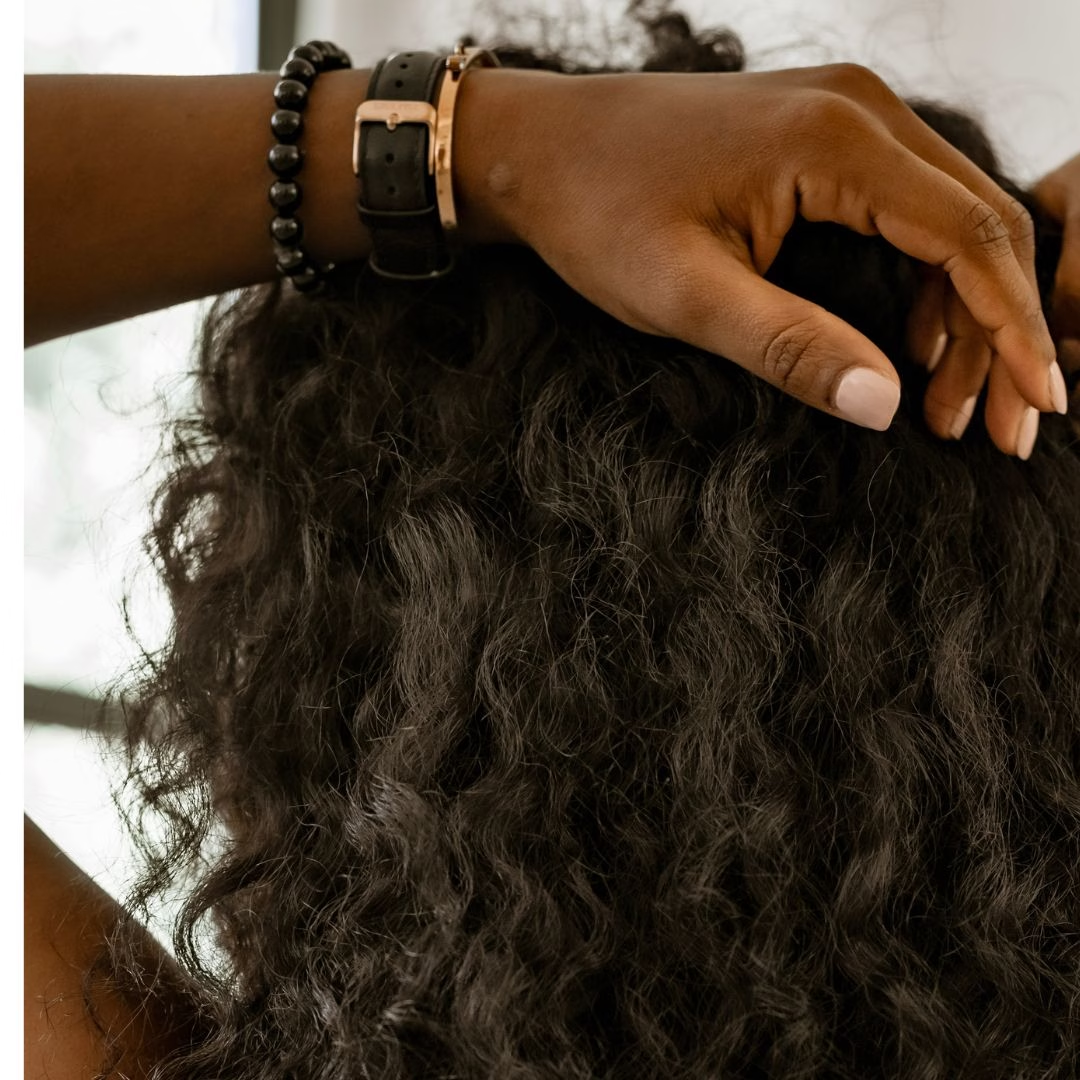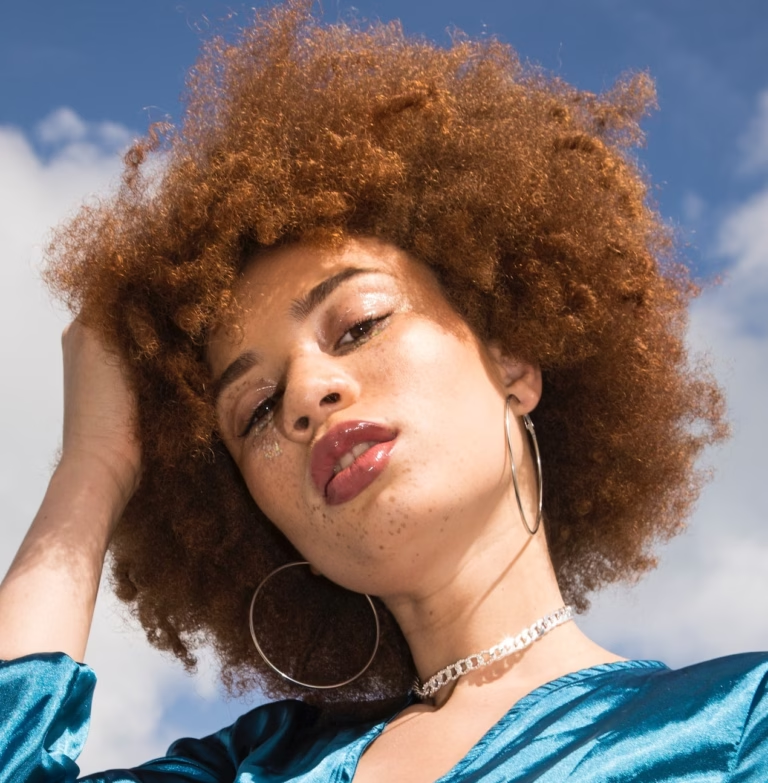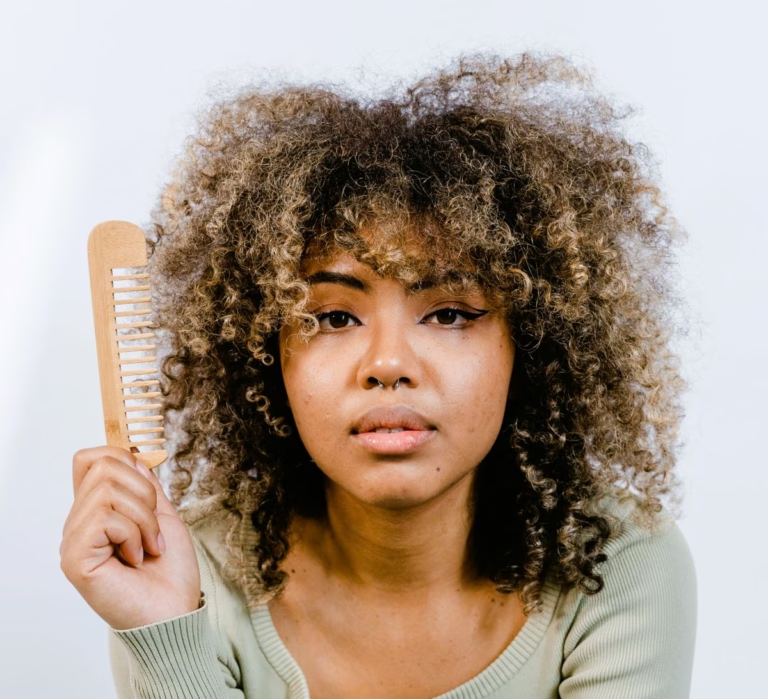Hair loss is a problem that plagues millions, from subtle thinning to runaway hair shedding. As a hair loss expert, I am asked repeatedly: “Why is my hair falling out?” The answer isn’t always easy—there are countless reasons for hair loss, and knowing the root cause is the best way to treat it.
In this article, we’ll be discussing the top four reasons for hair loss:
✅ Tight hairstyles & traction alopecia
✅ Dandruff & scalp inflammation
✅ Hormonal imbalances
✅ Stress
Want a quick summary of the top 4 causes of hair loss? Check out my video here:
🌿 Watch & Learn:
I’ve put together a quick, easy-to-follow video if you’d like a deeper dive into this topic.
✨ You’ll also find new weekly tips on stress-free skincare, hair wellness, and simple, science-backed beauty — don’t forget to subscribe here!
What Does a Hair Loss Specialist Do?
A hair loss specialist is a dermatologist who diagnoses and treats a wide variety of scalp and hair conditions, ranging from pattern baldness and telogen effluvium to traction alopecia and scalp dandruff. He or she should be capable of telling you the underlying causes of hair loss and, based on what they discover, making a list of what is behind it. If your hair loss has been due to genetics, something in your environment, or certain health problems, a specialist can lead you to the most effective treatment.
THE TOP FOUR
4. Tight Hairstyles & Traction Alopecia
How Tight Hairstyles Lead to Hair Loss
When you consistently tie your hair in tight buns, braids, ponytails, or cornrows, you can cause traction alopecia, which is one type of hair loss resulting from the constant tension put on the hair follicles. The tension wears down the follicles over time, causing weakening and breakage or hair shedding.
This is most common in individuals who wear protective styles or extensions daily since the weight and tension of the hair tend to compress the scalp. Traction alopecia may result in bald spots, particularly around the temples and hairline, which are the most susceptible areas to this form of stress.
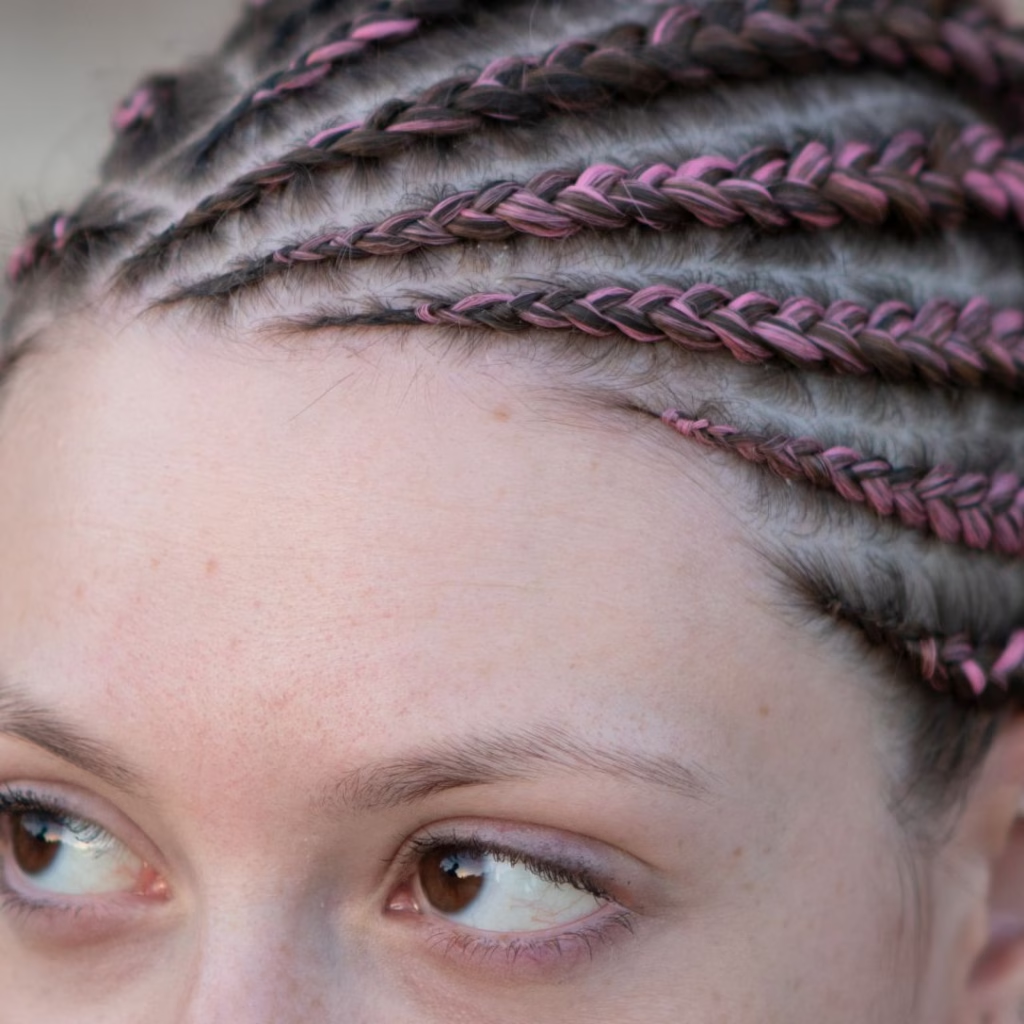
Prevention & Treatment
✅ Opt for looser hairstyles
✅ Take breaks from protective styles
✅ Avoid excessive heat styling & chemical treatments
✅ Consider using scalp-nourishing serums to support regrowth
Prevention of traction alopecia is using looser hairstyles and providing your hair with regular respite from tight hairstyles. Also, attempt to transition to hairstyles that do not involve constant pulling, like loose braids, low ponytails, or letting your hair hang loose.
For those suffering from traction alopecia, it’s crucial to reduce tension on the scalp as soon as possible. If caught early enough, the condition can be reversed with proper care. Regular scalp massages and use of hair serums that are full of nutrients can nourish the affected follicles.
3. Dandruff & Scalp Inflammation
Can Dandruff Actually Cause Hair Loss?
Yes! Dandruff is not just an annoying itch—it can also lead to hair loss if left untreated. The condition is often a symptoms of seborrheic dermatitis, an inflammation of the scalp that causes redness, flakes, and a dry, itchy scalp. When dandruff is chronic, the inflammation it creates can damage hair follicles and disrupt the process of normal hair growth.
In some cases, scalp inflammation aggravates hair loss conditions, for instance, male or female pattern baldness. The irritation and itchiness can lead to over-scratching, which damages the hair follicles and skin and further increases thinning hair.
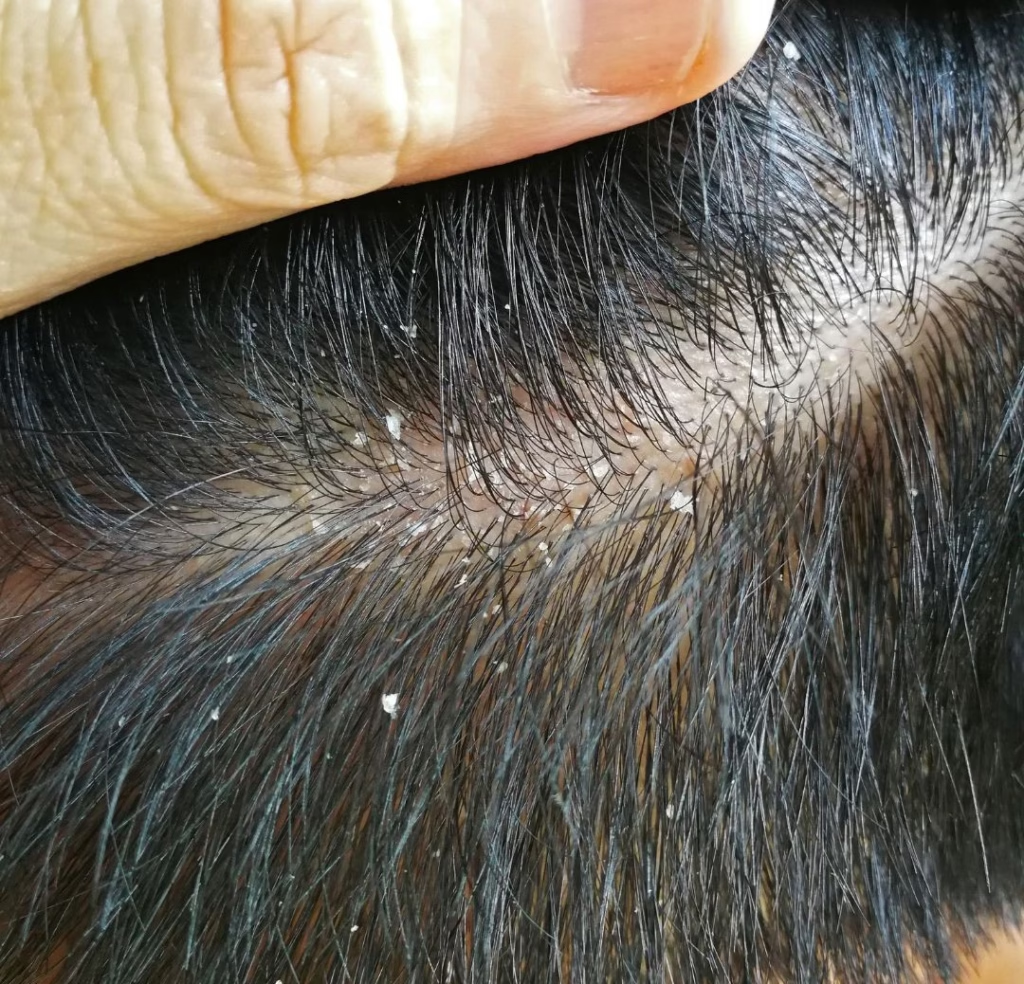
How to Repair It
🧴 Use medicated shampoos with zinc pyrithione or ketoconazole
💆♀️ Maintain scalp hygiene with regular cleansing
🥑 Eat a diet rich in omega-3s & antioxidants for scalp health
To treat dandruff, you need to use shampoos with active ingredients like zinc pyrithione, ketoconazole, or selenium sulfide, which reduce the overproduction of Malassezia, the yeast linked to dandruff and seborrheic dermatitis. Regular use allows these products to restore balance to the scalp and reduce flaking.
It is essential to ensure a healthy scalp environment. You can achieve this through gentle washing (not over-washing), chemical irritant avoidance, and sensitive skin product use. A diet that includes omega-3 fatty acids and antioxidants, such as in fish, flaxseeds, and nuts, can also improve scalp health.
2. Hormonal Imbalances & Hair Loss
Why Do Hormones Affect Hair?
Hormones also play a vital role in the cycle of hair growth. Hair thinning can be brought about by several hormonal imbalances, such as androgens (male hormones present in women and men). In women, hormonal imbalances brought about by pregnancy, menopause, or medical conditions such as polycystic ovary syndrome (PCOS) can cause extensive thinning of hair. Likewise, an underactive or overactive thyroid gland can impact the health of the hair by interfering with the cycle of hair growth.
Male-pattern baldness (androgenic alopecia) in men is also mostly governed by heredity and the level of DHT (dihydrotestosterone), a by-product of testosterone, which gradually reduces the size of hair follicles, leading to thinner hair.
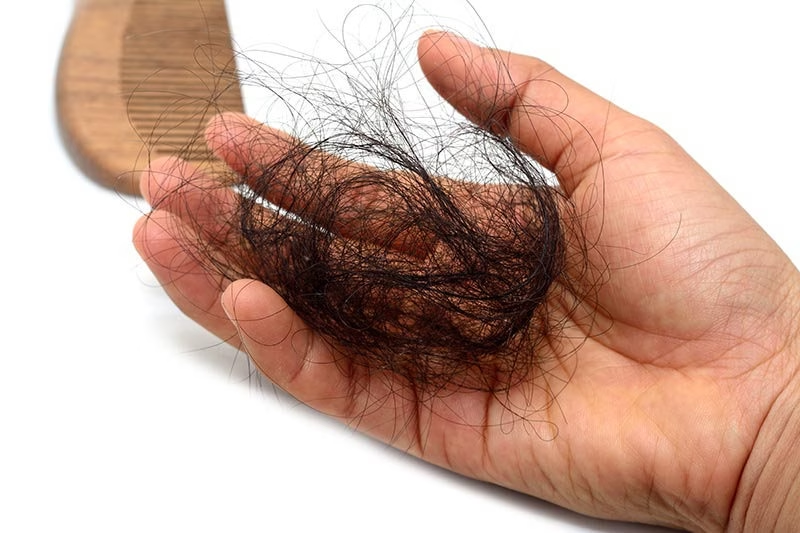
What Can You Do?
🔹 Consult a doctor to check for hormonal imbalances
🔹 Consider treatments like DHT blockers (if androgenic alopecia is suspected)
🔹 Focus on nutrient-rich foods that support hormone balance
If you believe that hormonal imbalance is the cause of your hair loss, the best thing to do is to consult a hair loss specialist or an endocrinologist. Hormonal testing can detect any imbalance that may be the cause of hair thinning.
Depending on the underlying issue, treatment options may include:
🔹 Hormonal medications, such as birth control pills or anti-androgens, to control hormonal imbalance
🔹 Minoxidil: This is a topical, over-the-counter medication directly applied to the scalp. It is FDA-approved for both women and men and is widely used for the treatment of androgenic alopecia and other conditions of hair thinning. Minoxidil works by stimulating hair follicles, causing hair regrowth, and extending the hair growth phase. It’s best used when started early in the hair loss process and must be used continually for a minimum of 3-6 months before visible results occur. While helpful, it may be a year before optimum results become apparent.
🔹 Finasteride: This prescription pill works by preventing the creation of DHT, the hormone that leads to hair follicle miniaturization in male-pattern baldness. By decreasing the levels of DHT, finasteride can halt further balding and even result in hair growth in people. Finasteride is primarily prescribed for men but is also taken off-label in women, particularly menopausal women. Pregnant or potentially pregnant women must not take finasteride due to its potential to cause birth defects.
🔹 Thyroid medication to correct thyroid issues
Further, eating a diet rich in vitamins and minerals that are known to support hormonal balance, such as vitamin D, zinc, and biotin, can enhance overall hair and scalp health.
1. Stress: The Biggest Hair Loss Culprit
How Stress Affects Your Hair
Stress is one of the most prevalent, but least discussed, causes of hair loss. Your body releases a hormone called cortisol when you are under stress, and this has a tendency to disrupt the hair growth cycle. Hair is pushed into the telogen (resting) phase prematurely when you are stressed, and this leads to telogen effluvium, or abnormal shedding of hair.
This type of hair loss from stress usually happens after a stressful incident, i.e., illness, death, or severe physical or emotional stress. The hair loss may begin 3-6 months after the stressful incident and may persist for months before the usual hair growth cycle resumes.

How to Manage Stress-Related Hair Loss
Stress management is very important for preventing hair loss as well as reversing it. Here are a few strategies:
🌿 Practice mindfulness activities like meditation, breathing deeply, or yoga to help lower cortisol.
🏃♀️ Exercise regularly, as physical activity helps the body to deal with stress better by releasing endorphins, the body’s own mood booster.
☕ Consider adding adaptogenic herbs like ashwagandha or rhodiola to your regimen to help your body cope more effectively with stress.
💤 Get a sufficient amount of restful sleep, as sleeping deprivation can increase stress and intensify hair loss.
Frequently Asked Questions
Can a hair loss specialist re-grow my hair loss?
It depends on the cause. You can see a hair loss specialist to help you understand your condition and suggest treatments, whether it’s medication, scalp care, or lifestyle changes. With the right approach, many people see improvement.
Are dandruff shampoos safe for all hair types?
Yes, dandruff shampoos can be used on any hair type. When you have curly or dry hair, however, consider using one that one is sulfate-free so you don’t strip your hair and scalp of natural oils.
Can stress hair loss come back?
Yes! After removing the cause of stress, hair may regrow within 6-9 months, but recovery will take some time.
Is traction alopecia reversible?
If detected early enough, traction alopecia can be reversed, and hair can be regrown. If the condition advances to scarring alopecia, regrowth may be limited.
Stay in the Know. Subscribe.

